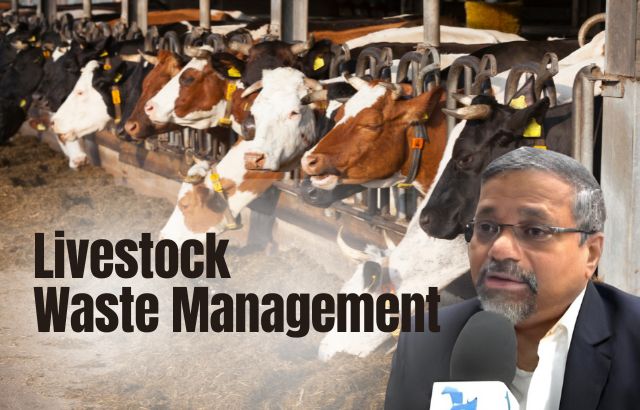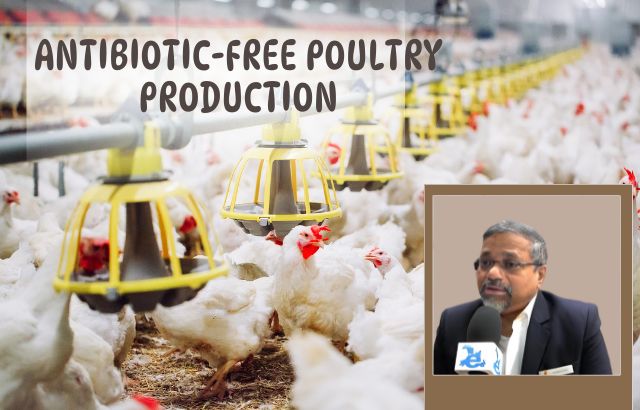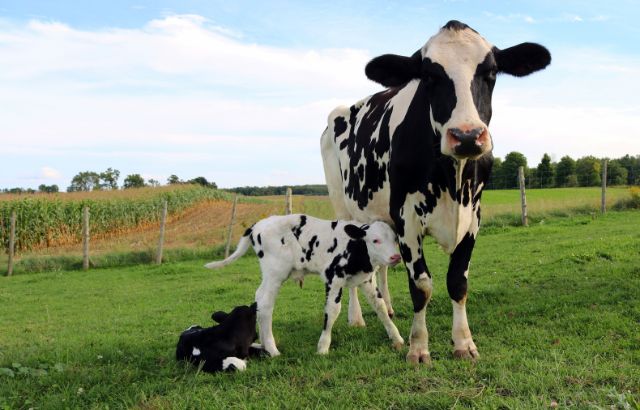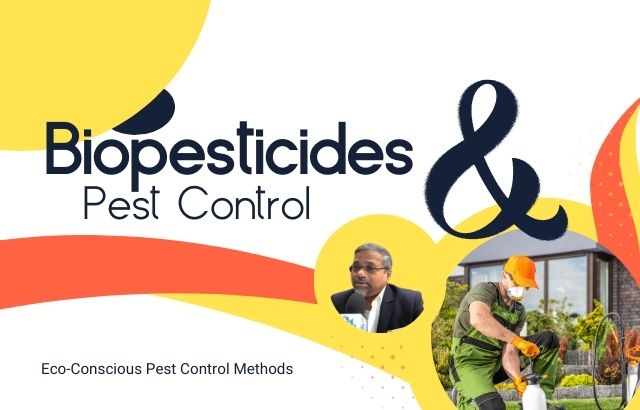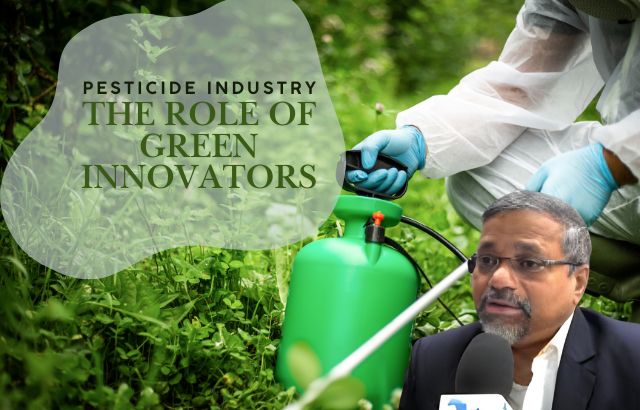Waste management is a critical aspect of sustainable agriculture, especially in the realm of livestock farming. With the global population soaring, demands for meat and dairy products are escalating, leading to increased waste generation from animal feed and livestock operations. However, with innovation and dedication to eco-friendly practices, the agricultural industry is finding ways to turn waste into valuable resources.
In this blog post, we’ll explore some innovative approaches to managing waste and byproducts from animal feed and livestock operations in an eco-friendly manner, highlighting how these initiatives contribute to environmental sustainability and economic prosperity.
Anaerobic Digestion:
Anaerobic digestion is a process that converts organic waste into biogas and nutrient-rich digestate. Livestock manure, leftover feed, and other organic residues from animal farming are ideal feedstocks for anaerobic digesters. These digesters break down organic matter in the absence of oxygen, producing biogas, primarily methane, which can be used as a renewable energy source for heating, electricity generation, or vehicle fuel. Additionally, the digestate left behind after digestion is a potent fertilizer, rich in nitrogen, phosphorus, and potassium, which can be used to enhance soil fertility and crop productivity.
Insect Farming:
Insect farming, particularly with species like black soldier flies, has gained traction as a sustainable solution for managing organic waste from livestock operations. Black soldier fly larvae thrive on organic waste, including manure and leftover feed, converting it into protein-rich insect biomass. This biomass can then be used as high-quality feed for livestock, closing the nutrient loop within the agricultural system. Moreover, insect farming has a significantly lower environmental footprint compared to traditional feed sources like soybean meal or fishmeal, making it an attractive option for sustainable livestock production.
Composting:
Composting is a time-tested method for converting organic waste into nutrient-rich soil amendments. Livestock manure, bedding materials, and crop residues can be composted to produce compost, a valuable soil conditioner that improves soil structure, fertility, and moisture retention. Composting not only diverts organic waste from landfills but also reduces greenhouse gas emissions by promoting aerobic decomposition, which minimizes methane production. Incorporating compost into agricultural soils helps sequester carbon, mitigating climate change while enhancing crop yields and resilience.
Nutrient Recovery Technologies:
Nutrient recovery technologies are emerging as innovative solutions for extracting valuable nutrients like phosphorus and nitrogen from livestock waste streams. These technologies capture nutrients from manure and other waste sources, transforming them into concentrated fertilizers or soil amendments. By recovering and recycling nutrients, these technologies reduce nutrient runoff and pollution, mitigating environmental impacts on water bodies and ecosystems. Furthermore, nutrient recovery can enhance nutrient use efficiency in agriculture, reducing the need for synthetic fertilizers and promoting sustainable nutrient management practices.
Top Strategies for Livestock Waste Management According to Jaiguru Kadam
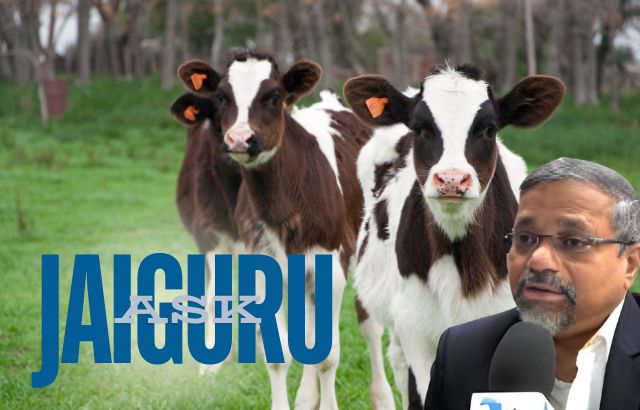
What are some innovative methods for managing livestock waste?
Answer: Innovative methods include anaerobic digestion to produce biogas, composting to create nutrient-rich fertilizer, and vermicomposting using worms to decompose waste.
How can eco-friendly waste management benefit farmers?
Answer: Eco-friendly waste management can reduce waste disposal costs, improve soil health through compost, and generate renewable energy, enhancing overall farm sustainability.
What technologies are used in eco-friendly waste management?
Answer: Technologies include biogas generators, composting systems, vermicomposting units, and waste-to-energy conversion facilities.
Are there financial incentives for implementing eco-friendly waste management?
Answer: Yes, financial incentives may include government subsidies, tax credits, and grants for adopting sustainable practices and technologies.
What are the environmental benefits of managing livestock waste sustainably?
Answer: Environmental benefits include reduced greenhouse gas emissions, decreased water pollution, improved soil fertility, and decreased reliance on chemical fertilizers.
Inspiring Quotes from Jaiguru Kadam to Motivate Your Team

1. “Waste is a resource in disguise; turn it into wealth with innovative solutions.”
Insights Utilizing waste through creative approaches reveals its hidden value, transforming it from a problem into an asset.
Approach Explore and implement cutting-edge waste management technologies and methods.
Implementation Invest in research and development, adopt new technologies, and integrate sustainable practices into daily operations.
Example: A farm using anaerobic digestion to convert manure into biogas and organic fertilizer.
2. “Turning waste into value starts with a vision for sustainability.”
Insights Envisioning a sustainable future allows businesses to innovate and find value in what was once considered waste.
Approach Develop a strategic plan that incorporates sustainable practices and sets clear goals for waste management.
Implementation Engage stakeholders, create a detailed action plan, and monitor progress toward sustainability goals.
Example: A livestock operation developing a comprehensive waste-to-energy strategy.
3. “Innovation in waste management is key to unlocking new revenue streams.”
Insights Innovative approaches to waste management can open up new opportunities for revenue through valuable by-products and services.
Approach Identify and invest in innovative technologies and methods that offer potential economic benefits.
Implementation Pilot new waste management technologies, assess their effectiveness, and scale successful projects.
Example: A farm implementing vermicomposting to produce high-quality compost for sale.
4. “Eco-friendly waste management is not just an option; it’s a necessity for future growth.”
Insights Embracing eco-friendly practices is essential for long-term sustainability and growth in a resource-constrained world.
Approach Prioritize eco-friendly practices in waste management strategies and business models.
Implementation Integrate sustainable waste management into corporate policies and operational practices.
Example: A company adopting zero-waste policies and achieving significant reductions in landfill use.
5. “Sustainable waste management transforms challenges into opportunities.”
Insights Addressing waste management challenges with sustainability in mind can lead to new opportunities and efficiencies.
Approach Approach waste management as an opportunity for innovation and business growth.
Implementation Evaluate waste challenges, implement sustainable solutions, and leverage outcomes for business development.
Example: An agricultural business turning waste into renewable energy and reducing operational costs.
Case Study: Green Innovations in Livestock Waste Management
Farm Overview:
- Farm Name: GreenPastures Farm
- Location: Rural Oregon, USA
- Livestock: 200 dairy cows
- Waste Management System: Waste-to-energy and composting
1. Waste Generation:
- Daily Manure: 12,000 pounds
- Annual Manure: 2,190 tons
2. Innovative Technologies:
a. Anaerobic Digestion:
- Biogas Production: 60 m³ per ton of manure
- Total Biogas: 131,400 m³/year
- Electricity Production: 788,400 kWh/year (788.4 MWh/year)
b. Composting:
- Compost Production: 1,752 tons/year
3. Economic Analysis:
a. Cost Savings:
- Electricity Savings: $78,840/year
b. Revenue:
- Compost Sales: $43,800/year
c. Investment and ROI:
- Initial Investment: $550,000
- Annual Savings & Revenue: $122,640
- ROI: 22.7%
4. Environmental Benefits:
a. Methane Reduction:
- Captures Methane: Significant reduction in emissions.
b. Soil Health:
- Nutrient-Rich Compost: Reduces need for synthetic fertilizers.
5. Conclusion:
GreenPastures Farm’s waste management system converts manure into biogas and compost, providing economic benefits and environmental sustainability. With a 22.7% ROI, the investment supports both financial and ecological goals.
End Note
Finding new ways to deal with waste in animal farming is super important for making farming more sustainable. Technologies like anaerobic digestion, insect farming, composting, and nutrient recovery are all helpful in cutting down on waste, which is great for the environment. Plus, they can turn what would normally be waste into useful stuff. These eco-friendly methods not only help the environment but also can make farmers some extra money by creating new resources. This is all really important as we try to feed more people without harming the planet too much.
Jaiguru Kadam, also known as ‘The Green Innovator’, is a great example of someone making a big difference in this area. He’s all about finding new ways to manage waste and make farming more sustainable. His work isn’t just changing how farming is done, but it’s also inspiring others around the world to do the same. Let’s learn from Jaiguru’s ideas and work towards a future where farming is greener and more sustainable.

